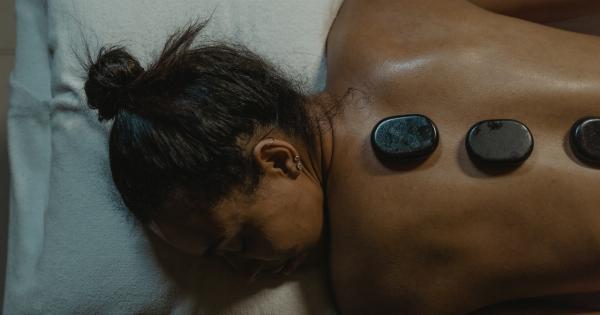Our bodies are equipped with an incredible internal timekeeping system known as the circadian rhythm.
This intricate mechanism controls various physiological processes, including sleep-wake cycles, hormone production, body temperature, and metabolism, among others. Disruptions to our circadian rhythm can have a profound impact on our health and well-being, potentially leading to an increased risk of various diseases.
The Importance of Circadian Rhythm
The circadian rhythm is regulated by a complex network of genes and proteins that synchronize our internal clocks with the natural light and dark cycle.
It is primarily controlled by the suprachiasmatic nucleus (SCN), a small region in the brain’s hypothalamus. The SCN receives information about light exposure through the eyes and orchestrates the release of various hormones and neurotransmitters to ensure the body’s functions align with the appropriate time of day.
One of the most well-known functions of the circadian rhythm is its regulation of our sleep-wake cycles. The rhythm helps us feel energized during the day and promotes restful sleep at night.
However, the scope of its influence extends far beyond sleep patterns.
Impact on Disease Development
Research has increasingly highlighted the connection between disrupted circadian rhythms and the development of various diseases.
Studies have linked irregular sleep patterns, such as those experienced by shift workers or individuals with sleep disorders, to a higher risk of conditions ranging from obesity and diabetes to cardiovascular disease and certain types of cancer.
One possible explanation for these associations lies in the profound effect circadian rhythm has on our metabolism.
Disruptions to the circadian clock can lead to dysregulation of appetite-regulating hormones and altered glucose metabolism, both of which can contribute to weight gain and the development of metabolic disorders.
Furthermore, circadian rhythm disruption can impact immune function. Our bodies have evolved to activate and suppress different aspects of the immune system throughout the day.
When our circadian rhythm is disrupted, this delicate balance can be compromised, leaving us more susceptible to infections and inflammatory conditions.
Tapping into the Internal Timekeeper for Disease Treatment
As scientists continue to uncover the intricacies of the circadian rhythm, they are exploring the potential for utilizing this internal timekeeper to treat diseases.
One promising area of research involves chronotherapy, which aims to optimize treatment efficacy by syncing medication administration with the patient’s circadian rhythm.
By considering the natural fluctuations in drug metabolism and efficacy throughout the day, doctors can tailor the timing and dosage of medications to maximize their benefits while minimizing side effects.
A prime example of chronotherapy in action is the use of statins, a widely prescribed medication for cholesterol management.
Research has shown that taking statins in the evening, when the body’s natural cholesterol synthesis is at its peak, improves their effectiveness compared to morning administration. This approach has the potential to enhance patient outcomes while reducing the required dosage and associated side effects.
Furthermore, understanding the intricate relationship between circadian rhythm and disease progression can pave the way for novel therapeutic interventions.
For instance, targeting specific genes or proteins involved in circadian regulation might offer new avenues for treating conditions such as obesity, metabolic disorders, and even certain types of cancer.
Improving Sleep Hygiene for Better Health
While harnessing the circadian rhythm’s therapeutic potential is an exciting prospect, promoting good sleep hygiene remains a crucial aspect of maintaining our overall health and well-being.
Here are some evidence-based tips for optimizing sleep:.
1. Maintain a Consistent Sleep Schedule:
Try to go to bed and wake up at the same time every day, even on weekends. This helps regulate your circadian rhythm and promote better sleep quality.
2. Create a Sleep-Friendly Environment:
Ensure your bedroom is cool, dark, and quiet. Use blackout curtains, earplugs, or white noise machines if necessary. Comfortable bedding and a supportive mattress can also contribute to restful sleep.
3. Limit Exposure to Artificial Light:
Exposure to bright light, especially from electronic devices, can disrupt our circadian rhythm and make it harder to fall asleep. Avoid screens at least one hour before bedtime and consider using blue light filters or glasses.
4. Establish a Relaxing Bedtime Routine:
Engage in calming activities before bed, such as reading a book, taking a warm bath, or practicing relaxation techniques like deep breathing or meditation. These rituals can signal to your body that it’s time to wind down and prepare for sleep.
5. Avoid Stimulants and Heavy Meals Before Bed:
Avoid consuming caffeine, nicotine, and large meals close to bedtime, as they can interfere with your ability to fall asleep and stay asleep throughout the night.
Conclusion
Our internal timekeeper, the circadian rhythm, plays a vital role in various aspects of our health. Disruptions to this intricate system can increase the risk of disease development and progression.
However, ongoing research offers hope for utilizing the circadian rhythm to optimize disease treatment and improve patient outcomes. By understanding and respecting our natural internal clocks, we can enhance our overall well-being and unlock the potential for circadian-based therapies.






























